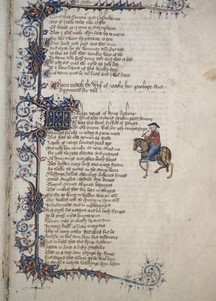

Much of this research is based on my 1974 Berkeley doctoral dissertation, which went into three editions as a published book, The Pilgrim and the Book: A Study of Dante, Langland and Chaucer, https://isbnsearch.org/isbn/08204209051992, its Dante sections also published in an Italian edition in De strata francigena XX/1, 2012.

JULIAN OF NORWICH, HER SHOWING
OF LOVE AND ITS CONTEXTS ©1997-2024 JULIA BOLTON HOLLOWAY
|| JULIAN OF
NORWICH || SHOWING
OF LOVE || HER TEXTS
|| HER SELF
|| ABOUT
HER TEXTS || BEFORE
JULIAN || HER
CONTEMPORARIES || AFTER
JULIAN || JULIAN IN OUR
TIME || ST BIRGITTA
OF SWEDEN ||
BIBLE AND WOMEN
|| EQUALLY IN
GOD'S IMAGE || MIRROR OF
SAINTS || BENEDICTINISM
|| THE CLOISTER
|| ITS SCRIPTORIUM
|| AMHERST
MANUSCRIPT || PRAYER || CATALOGUE AND
PORTFOLIO (HANDCRAFTS, BOOKS ) || BOOK REVIEWS || BIBLIOGRAPHY || TERENCE PORTAL,
| To donate to the restoration by Roma of Florence's
formerly abandoned English Cemetery and to its Library
click on our Aureo Anello Associazione:'s
PayPal button: THANKYOU! |